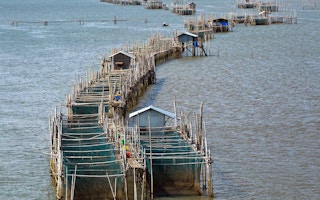The rising demand for fish, combined with unsustainable fishing practices, has put tremendous pressure on wild catches. Aquaculture — cultivation of fish and shellfish — has been trying to fill this gap.
In fact, aquaculture’s contribution to the total food fish supply has increased from 9 per cent in 1980 to 48 per cent in 2011, according to UN’s Food and Agriculture Organization (FAO).
Yet, like many other rapidly growing industries, aquaculture has numerous problems to overcome. Scientists say that many of the aquaculture industry’s practices are still environmentally and economically unsustainable.
But now you can be part of the solution.
On February 29, Australia’s Department of Foreign Affairs and Trade (DFAT), in partnership with Conservation X Labs, SecondMuse, NineSigma, and the World Wildlife Fund, launched the Blue Economy Challenge — an innovation challenge that aims to transform the aquaculture industry, particularly in the Indian Ocean region.
The Blue Economy Challenge is seeking entries that can help achieve both food security and conservation of oceans. The Challenge wants applicants to develop “aquaculture technologies and systems that grow economies, improve the lives of disadvantaged people in the developing economies of Indian Ocean region, and achieve positive environmental and social impacts.”
Both experts and non-experts can send in their ideas.
“We have launched a challenge – hopefully the first in a series of Grand Challenges for Conservation – to harness the existing conservation and aquaculture experts, but also incorporate technologists, engineers, molecular biologists, designers, makers, innovators, hackers, marketers, financiers, behavioral biologists, economists, and anthropologists,” Alex Dehgan, co-founder of the Washington DC-based startup Conservation X Labs, and a senior visiting fellow at Duke University, told Mongabay.
The Challenge will be open for online applications from 29 February 2016 to 30 June 2016, and the winners will be announced by the DFAT sometime between September to October, 2016. Winners can receive grants of up to AU$750,000 (~US$550,000) for any single idea.
Mongabay spoke with Dehgan about the challenge.
The interview can be read here. This story was published with permission from Mongabay.










